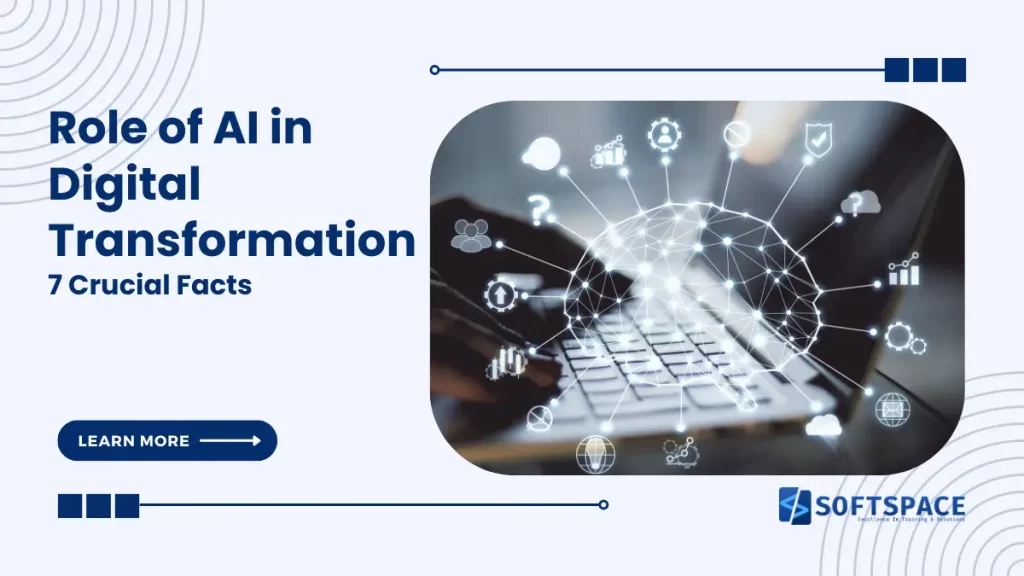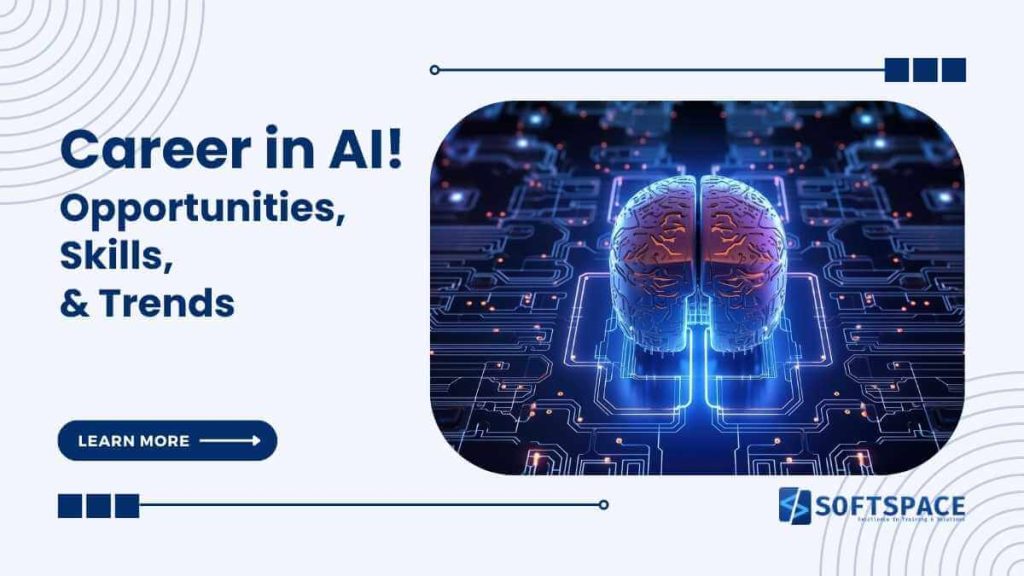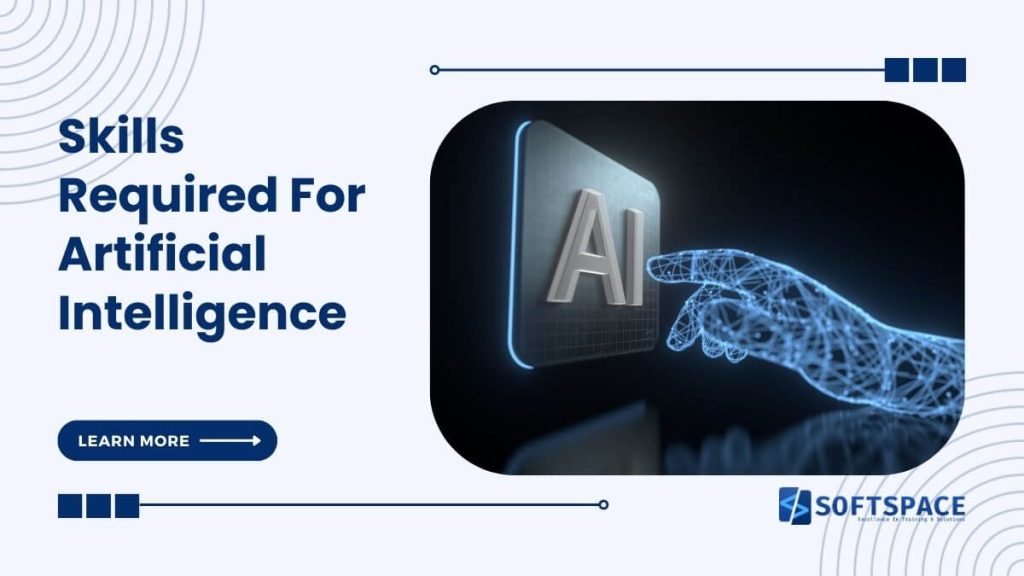In this digital age, businesses are constantly seeking innovative ways to stay ahead of the competition. Enter artificial intelligence (AI), the cutting-edge technology that is revolutionizing the way companies operate. From automation to data analysis, AI is transforming business practices across various industries.
With AI, businesses can automate repetitive tasks and streamline workflows, allowing employees to focus on more strategic and creative endeavours. Additionally, AI-powered algorithms can analyze vast amounts of data in real-time, providing invaluable insights and enabling better decision-making.
However, the role of AI in digital transformation goes beyond improving internal processes. It also enhances the customer experience by personalizing interactions and anticipating their needs. Chatbots powered by AI can provide instant and accurate responses, enhancing customer satisfaction and reducing support costs.
Moreover, AI has a tremendous impact on marketing. By analyzing customer behaviour and preferences, AI algorithms can tailor marketing campaigns to specific target audiences, resulting in higher conversion rates and increased revenue.
As AI continues to evolve, businesses that embrace this transformative technology will gain a competitive edge in the market. The future is here – AI is ready to revolutionize your business.
Table of Contents
Role of AI in digital transformation
Artificial intelligence has had a profound impact on businesses across various industries. It has transformed the way companies operate, enabling them to streamline processes, make data-driven decisions, and enhance the overall customer experience.
One of the key areas where AI has made a significant impact is automation. By leveraging AI-powered automation tools, businesses can eliminate repetitive and mundane tasks, freeing up employees’ time to focus on more strategic and creative endeavours. This not only increases productivity but also improves employee satisfaction.
The role of AI in digital transformation is visible and invaluable in data analysis. With the ability to analyze vast amounts of data in real-time, AI algorithms can uncover patterns and trends that humans may miss. This enables businesses to make more informed decisions and gain a competitive edge in the market.
Furthermore, AI has revolutionized customer service and personalization. Chatbots powered by AI can provide instant and accurate responses to customer queries, improving response times and enhancing customer satisfaction. Additionally, AI algorithms can analyze customer data to personalize interactions and anticipate their needs, resulting in a more personalized and engaging customer experience.
Also in the modern tech world, the role of AI in digital transformation is super useful and prioritized to use in every industrial sector. Many technical trends are using AI for after-deliverance.
Role of AI in digital transformation: Industry-Wise
AI has found applications in various industries, transforming the way businesses operate and deliver value to their customers. Let’s explore some of the key industries where AI has made a significant impact.
- Healthcare: In the healthcare industry, AI has revolutionized diagnostics, drug discovery, and patient care. AI-powered systems can analyze medical images and detect abnormalities with high accuracy, enabling early detection and treatment of diseases. Additionally, AI algorithms can analyze patient data to personalize treatment plans and improve patient outcomes.
- Finance: AI has transformed the financial industry by improving fraud detection, risk assessment, and trading strategies. AI algorithms can analyze large volumes of financial data to identify fraudulent activities and assess creditworthiness. Furthermore, AI-powered trading systems can analyze market trends and make data-driven investment decisions in real-time.
- Retail: In the retail industry, AI has enhanced the customer experience and optimized supply chain management. AI algorithms can analyze customer data to personalize recommendations and offers, increasing customer engagement and loyalty. Additionally, AI-powered inventory management systems can forecast demand and optimize stock levels, reducing costs and improving operational efficiency.
- Manufacturing: AI has revolutionized the manufacturing industry by enabling predictive maintenance, quality control, and process optimization. AI-powered systems can proactively analyze sensor data to predict equipment failures and schedule maintenance. Furthermore, AI algorithms can analyze production data to identify quality issues and optimize manufacturing processes for improved efficiency.
Benefits of Using AI in Business Operations
The role of AI in digital transformation offers numerous benefits that can drive growth and success. Let’s explore some key benefits businesses can reap by leveraging AI technology.
- Improved Efficiency: By automating repetitive tasks and streamlining workflows, AI can significantly improve operational efficiency. This not only saves time but also reduces costs and allows employees to focus on more strategic and creative endeavours.
- Data-Driven Decision-Making: AI algorithms can analyze vast amounts of data in real-time, providing valuable insights that can inform decision-making. By leveraging AI-powered analytics, businesses can make data-driven decisions that lead to better outcomes and a competitive edge in the market.
- Enhanced Customer Experience: AI-powered chatbots and personalized recommendations can enhance the customer experience by providing instant and accurate responses and tailored recommendations. This improves customer satisfaction, increases engagement, and drives customer loyalty.
- Optimized Marketing Efforts: AI algorithms can analyze customer behaviour and preferences to tailor marketing campaigns to specific target audiences. This results in higher conversion rates, increased revenue, and a more efficient allocation of marketing resources.
Challenges and Concerns Surrounding AI Implementation
While AI offers numerous benefits, its implementation also comes with challenges and concerns that businesses need to address. Let’s explore some of the key challenges and concerns surrounding AI implementation.
- Data Privacy and Security: AI relies on vast amounts of data to learn and make predictions. This raises concerns about data privacy and security. Businesses need to ensure that they have robust data protection measures in place to safeguard sensitive customer information.
- Ethical Considerations: AI raises ethical considerations, especially in areas such as autonomous vehicles and facial recognition. Businesses need to ensure that AI systems are designed and deployed ethically, taking into account potential biases and societal implications.
- Lack of Skilled Workforce: Implementing AI technology requires a skjilled workforce with expertise in AI and data analytics. The demand for AI professionals often exceeds the supply, making it challenging for businesses to find and retain the right talent.
- Integration with Existing Systems: Integrating AI technology with existing systems and processes can be complex and time-consuming. Businesses need to ensure that they have a well-defined integration strategy and the necessary resources to support a successful implementation.
AI-Powered Automation and Efficiency
Artificial intelligence (AI) is rapidly transforming the way businesses operate. By automating tasks, analyzing data, and making intelligent decisions, AI is boosting efficiency and productivity across industries. This article explores how AI is revolutionizing various sectors, from automating e-commerce fulfilment to streamlining financial services.
We’ll delve into specific examples that showcase the power of AI in action, highlighting the benefits it brings to businesses and customers alike.
The role of AI in digital transformation is efficiently visible in revolutionizing many industries. Here are some compelling examples:
- Warehouse automation: AI can power robots that navigate warehouses, pick and pack items, and even handle returns. This increases efficiency, reduces fulfilment times, and lowers labour costs.
- Predictive maintenance: AI can analyze sensor data from machines to predict failures before they occur. This proactive approach prevents costly downtime and ensures smooth production processes.
- Demand forecasting: AI can analyze vast amounts of data to predict customer demand and optimize inventory levels. This reduces the risk of stockouts and overstocking, leading to a more efficient supply chain.
- Chatbots and virtual assistants: AI-powered chatbots can answer frequently asked questions, troubleshoot basic issues, and even schedule appointments. This frees up human agents for more complex inquiries and reduces wait times for customers.
- Optical Character Recognition (OCR): AI can be used to extract data from invoices, receipts, and other documents. This automates manual data entry tasks and improves accuracy.
- Lead scoring: AI can analyze customer data to identify qualified leads and prioritize sales outreach. This streamlines the sales process and improves conversion rates.
AI-Powered Customer Service and Personalization
AI has revolutionized customer service by enabling businesses to provide instant and accurate responses to customer queries. Chatbots powered by AI can handle customer inquiries 24/7, reducing response times and improving customer satisfaction.
Moreover, AI algorithms can analyze customer data to personalize interactions and anticipate their needs. By understanding customer preferences and behaviour, businesses can tailor recommendations, offers, and marketing campaigns to specific individuals or segments. This results in a more personalized and engaging customer experience, driving customer loyalty and increasing revenue.
AI-powered personalization is particularly beneficial in the e-commerce industry. By analyzing customer browsing and purchase history, AI algorithms can recommend products that align with the customer’s preferences and increase the likelihood of a purchase. This not only improves the customer experience but also boosts conversion rates and revenue.
The role of AI in digital transformation is proving to have a significant impact on the world of e-commerce, personalizing the shopping experience and streamlining operations. Here are some specific examples of how AI is being used in e-commerce:
- Product Recommendations: Imagine a virtual shopping assistant that suggests items you might love based on your browsing history and past purchases. This is exactly what AI-powered recommendation engines do on major e-commerce platforms like Amazon. By analyzing vast amounts of customer data, AI can identify patterns and recommend products with high conversion potential.
- Smart Search: AI can power intelligent search functions that understand natural language and synonyms. This allows customers to find what they’re looking for using more descriptive terms, not just exact keywords. For instance, searching for “comfy running shoes” instead of just “running shoes” can provide more relevant results.
- Chatbots and Virtual Assistants: These AI-powered tools can answer customer questions about products, guide them through the buying process, and even handle simple returns or exchanges. This provides 24/7 customer support and frees up human representatives for more complex inquiries.
- Dynamic Pricing: AI can analyze market trends, competitor pricing, and customer demand to adjust product prices in real-time. This ensures businesses stay competitive and maximize profits while still offering attractive deals to customers.
- Fraud Detection: AI algorithms can analyze customer purchase behaviour and identify suspicious patterns that might indicate fraudulent activity. This protects e-commerce businesses from financial losses and safeguards customer information.
- Personalized Marketing: AI can personalize marketing emails and promotions based on a customer’s browsing behaviour and purchase history. This targeted approach increases the relevance of marketing messages and improves the chances of conversion.
- Image Recognition and Visual Search: AI can allow customers to search for products using images. This is particularly helpful for products like clothing or furniture where visual search can be more intuitive than text-based searches.
AI in Marketing and Sales
AI has transformed the way businesses approach marketing and sales. By analyzing vast amounts of customer data, AI algorithms can tailor marketing campaigns to specific target audiences, resulting in higher conversion rates and increased revenue.
One area where AI has made a significant impact is in content personalization. AI algorithms can analyze customer behaviour and preferences to deliver personalized content recommendations, increasing engagement and driving conversions. This enables businesses to deliver the right message to the right audience at the right time, maximizing the effectiveness of their marketing efforts.
The role of AI in digital transformation is having a major impact on both marketing and sales and here are some cool examples of how it’s being used:
- Personalization: AI can analyze customer data to understand their preferences and recommend products, content, and deals that are most likely to interest them. Companies like Netflix use this to suggest movies you might enjoy, or Spotify to create personalized playlists.
- Chatbots: AI-powered chatbots can answer customer questions, provide support, and even qualify leads for sales teams. This frees up human sales reps to focus on more complex tasks. Sephora uses chatbots to help customers navigate their wide selection of beauty products.
- Predictive Analytics: AI can analyze data to predict customer behaviour and identify sales opportunities. This allows businesses to target their marketing efforts more effectively and close deals faster. For example, Nike uses AI to predict what shoes a customer might be interested in based on their past purchases and browsing behaviour.
- Content Creation: AI can be used to generate content, such as blog posts, product descriptions, and even social media posts. This can save marketers a lot of time and effort, and can also help to ensure that content is consistently high-quality.
- Social Media Marketing: AI can be used to identify trends and target audiences on social media platforms.ma This allows businesses to get their message in front of the right people at the right time. Wowcher uses AI to personalize their social media posts and ads to get better engagement.
AI in Data Analysis and Decision-Making
AI has revolutionized data analysis by enabling businesses to analyze vast amounts of data in real-time and uncover valuable insights. By leveraging AI-powered analytics, businesses can make data-driven decisions that lead to better outcomes.
AI is revolutionizing data analysis and decision-making by offering powerful tools to sift through massive datasets and uncover hidden insights. Here are some compelling examples:
- Fraud Detection: AI algorithms can analyze vast amounts of financial transactions in real-time to detect anomalies and patterns that might indicate fraudulent activity. This helps organizations like American Express prevent financial losses and protect their customers.
- Real-time Analysis: AI excels at processing data as it’s generated, enabling businesses to identify trends, issues, and opportunities as they unfold. This is crucial for applications like predictive maintenance, where AI can analyze sensor data from equipment to predict failures before they occur.
- Unstructured Data Analysis: AI, particularly Natural Language Processing (NLP), can analyze and understand unstructured data like social media posts, customer reviews, and emails. This allows businesses to gather valuable insights from these previously untapped sources of information.
- Improved Customer Experience: AI can analyze customer data to personalize recommendations, predict their needs, and proactively address any issues. This can significantly enhance customer satisfaction and loyalty. For instance, AI-powered chatbots can answer customer inquiries and provide support, streamlining the customer service experience.
- Strategic Planning: AI can analyze complex datasets and identify patterns that might not be obvious to humans. This empowers businesses to make data-driven decisions for strategic planning, product development, and resource allocation.
Conclusion and Future of AI in Business
In conclusion, artificial intelligence is transforming businesses across various industries, revolutionizing the way companies operate and deliver value to their customers. From automation to data analysis, AI offers numerous benefits that can drive growth and success.
As AI continues to evolve, businesses that embrace this transformative technology will gain a competitive edge in the market. However, it is essential to address the challenges and concerns surrounding AI implementation, such as data privacy and ethical considerations.
The future of AI in business looks promising. As AI algorithms become more advanced and capable, businesses can expect even greater automation, personalization, and data-driven decision-making. By harnessing the power of AI, businesses can unlock new opportunities, improve operational efficiency, and deliver exceptional customer experiences. The time to embrace AI is now.

13+ Yrs Experienced Career Counsellor & Skill Development Trainer | Educator | Digital & Content Strategist. Helping freshers and graduates make sound career choices through practical consultation. Guest faculty and Digital Marketing trainer working on building a skill development brand in Softspace Solutions. A passionate writer in core technical topics related to career growth.




